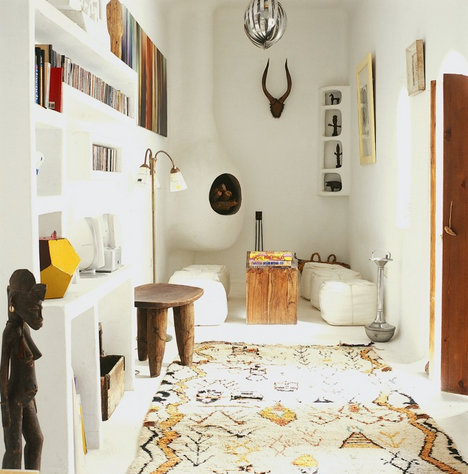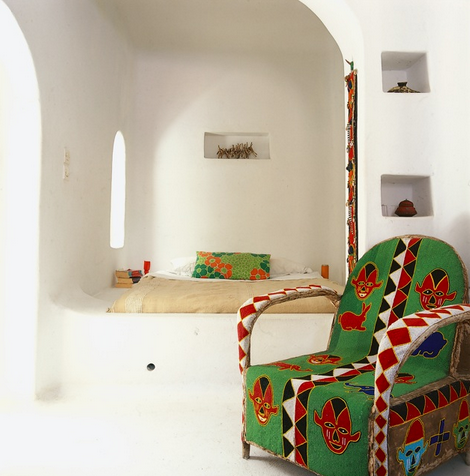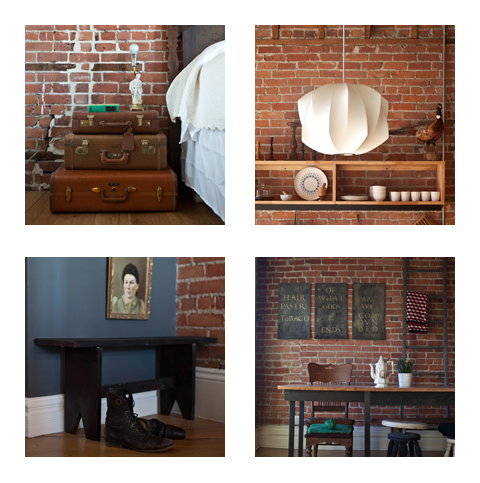People are always searching for authenticity—in art, in food, in music, in their relationships, and especially in travel.
Today the NY Times ran an article by Holland Cotter about a remote region of Mali called Dogon Country: “In Mali, Art as Real as Life Itself”. It’s an ode to authenticity in art and travel, but not necessarily in the way you might first expect.
When Cotter experiences the shortened tourist version of a traditional funeral dance, he has the same initial reaction Steven and I did when we stumbled upon one back in 2007 (see pages 364-367 in To Timbuktu); he is kind of bummed out that it’s fake, or as he puts it “canned ethnography”.

“The one I saw under the hot winter sun was the CliffNotes edition,” he writes. “But it was also an example of history in motion, cultural survival in progress, “ How so?
Life’s hard in Dogon Country—young men leave for opportunities in the city, agriculture is a struggle in the face of climate change—but tourism like this is a godsend because it brings in cash, keeps young people close to home, and thus winds up helping preserve the original, traditional version of the dance that the community performs for itself. Cotter writes, “By packaging and selling their culture, the Dogon have been keeping it viable.”

I found myself vigorously nodding along as I read:
“In the West we have a particular definition of authenticity and a mania for it as a standard for art, especially art that we envision as elemental, unmodern, unsoiled. We gauge genuiness in terms of age, rarity, uniqueness, history of use, motives for creation.”
Do we ever! As some of you know, I just returned from a trip that was essentially an expensive search for authenticity; I was part of a documentary film crew in Morocco.
We blew through the country, covering several thousand miles in two weeks, going to a new city every day we woke up all while trying to capture the local feel and voices of each place. Yes, there were times when it felt like an impossible task—any documentary filmmaker will tell you that you need time for people to let you in, to forget the cameras are there, to discover the subtle narratives. That said, I’m sure these guys are going to come up with something beautiful and moving in the editing process since they’re all a truly talented bunch.

But to bring it back to Cotter in Dogon Country—the Director and I had a lot of discussions about what was and was not authentic about what we were capturing on film and what we were experiencing in our travel. For the Director, authenticity had to incorporate elements like poverty, loneliness, and political rebellion—none of which our Producer had any interest in exploring. Instead we were getting beautiful scenery, interviews with hoteliers and academics, lots of private concerts, and generally having a nice time. Needless to say, our Director found that frustrating.
I found it hard to navigate too, mostly because part of my job as Production Assistant and the crewmember with the most recent experience in Morocco was to find us authentic people and places to film and my two bosses couldn’t agree on what exactly authentic meant—never mind that even if they did we still had to weasel our way into the situation with cameras and get people to trust us and give us something interesting over the course of the few hours we had with them.
So in many ways I really appreciate that through his experience in Dogon Country, Cotter comes to see authenticity as something more fluid than he once thought. “In Africa, as often as not, authentic is simply what works, socially and spiritually… Art, like life, is about growing and recharging, keeping on the move. Change is realness. Africa, present-minded and unsentimental, seems to keep saying this.”
Yes, I totally cringe at his liberal application of “Africa” all over the place. (Why people? Why do we keep talking about Aaaaaafricaaaaah? I’m hoping that in this instance it’s because Cotter is doing a four part series that will take him to several different countries on the continent.) But I still like the idea that what is authentic is always changing—from time to time, from place to place, person to person. It gets the sociologist in me all riled up. There is no” truth”! There is no “real”! It’s all a socially constructed reality that we choose to abide by!
And none of that has to be heartbreaking. In fact, it can be absolutely liberating. You get to go out there and choose your own authenticity.






